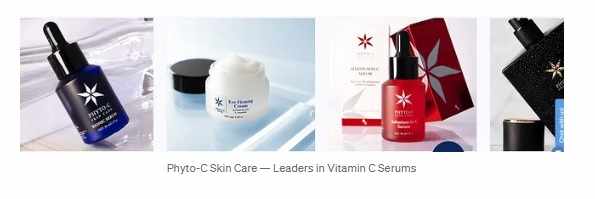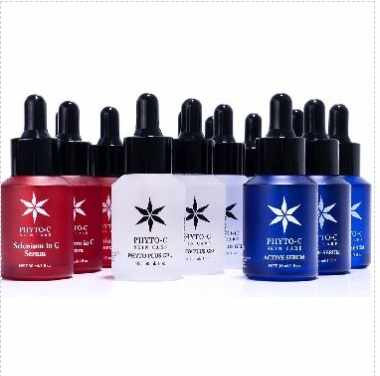
There are mixed views about using vitamin C serum on sensitive skin, even though many people claim it helps brighten their skin and improve texture. Is the dose too big? Might it lead to redness or irritation?
Because of these questions, it becomes difficult to understand what is true. Serum for vitamin C is often surrounded by many myths, mostly concerning sensitive skin. In the article, we will try to separate the facts from the myths, which will help you decide what works and what doesn’t. If anti-aging vitamin C serum for 30+ skin hasn’t seemed like a good fit for your face, this guide will show you why it is.
Myth: Vitamin C Is Too Harsh for Sensitive Skin
Vitamin C serum is sometimes said to be better for those without sensitive skin, but it depends. It is often the result of having a high concentration, plus when the formula has other rough additives.
Regular use of gentle vitamin C serums may increase the strength and brightness of sensitive skin over time. It depends on picking the proper product and beginning to use it slowly. Sensitive skin needs to use a vitamin C product that is carefully prepared.
The pH Level Affects the Use of Vitamin C
If you want to deal with dull or pigmented skin, serums will work more efficaciously and give results faster. Should your skin be sensitive and you need hyper vitamin C serum benefits that will hydrate and brighten your complexion, go for a cream.
Your choice of moisturizer depends on whether you want fast hydration or hydration that stays all day. This step makes the tingling less intense and allows the serum to keep doing its job. Avoiding a vitamin C serum that irritates your skin is possible by picking one with a neutral pH level.
Myth: More Vitamin C Means Faster Results
It could make sense that more vitamin C in a serum will work faster, but this isn’t true. Sensitive skin usually can’t cope with high percentages easily.
A 20% vitamin C serum might cause the skin around the eyes to become red, peel, or break out. In many situations, using just 10% or less every day gives about the same benefits as a higher strength. Even a gentle product is safer to use regularly than too much of a high-strength product at the beginning.
Inflammation Can Be Helped with the Right Level of Vitamin C
Redness and irritation that sensitive skin experiences may be reduced by taking vitamin C. If you are worried about does vitamin C serum reduces wrinkles and fine lines, if you use it regularly, it can better support your skin in avoiding flare-ups.
It takes time for the results to become visible. Regularly using a properly made serum over time will cause the skin to look smoother and less irritated. Opting for a serum that does not contain alcohol or fragrances is good for the outcome and your skin’s health.
Using it every now and then can join forces with your skin and make it better at avoiding acne flares.
Myth: You can’t layer vitamin C serum for acne scars and dark spots with Other Products
Lots of people believe that vitamin C serum for acne scars and dark spots clashes with other steps in your skincare routine, especially on sensitive skin. Although vitamin C is potent, you should always use it with soft and mild products.
There is no problem in using vitamin C products together with moisturizers, sunscreen, and hyaluronic acid serums.
Tip for sensitive skin:
Keep a simple routine of cleanser, vitamin C serum, and moisturizer with SPF
Avoid layering too many active ingredients at once
Use hydrating serums alongside vitamin C for better comfort
Fact: Timing and Storage Affect Results
Many people do not know this, but the way you store and use your vitamin C serum is significant. Air and light can destroy part of the vitamin C in the serum, making it less helpful.
Always keep your serum away from light and in a cool spot, and always close the lid tightly. Using sunscreen in the morning helps guard your skin from pollution, wind, and other daily stresses.
Myth: Tingling Means It’s Working
For some, having a tingling or stinging sensation during use means vitamin C is at work, yet this does not mean it is working. This tingling sensation is a sign that the formula might be harsh for your skin or that the barrier has been damaged.
A suitable vitamin C serum for sensitive skin ought not to cause stinging after application. Should you feel irritated, stop using that product and pick one that is more gentle.
Fact: Sensitive Skin Can Benefit from the Right Formula
The reality is that sensitive skin benefits a lot from vitamin C as long as you pick the right serum. When the formula contains low concentrations, a proper pH, and gentle substances, it can nourish, shield, and brighten very sensitive skin.
Buy serums that do not contain fragrances, alcohol, or tough preservatives. Use it just a couple of times a week at the start, and then slowly add more use.
How to Introduce Vitamin C Serum into a Sensitive Skin Routine
If you have sensitive skin and are wondering how to use vitamin C serum for acne-prone skin, introducing vitamin C serum slowly is key to avoiding irritation. Start by applying it once or twice a week, preferably at night. This allows your skin to adjust to the active ingredient without feeling overwhelmed.
Always cleanse your skin with a gentle, fragrance-free cleanser before application. Follow with your vitamin C serum, then lock in the benefits with a soothing moisturizer. If your skin tolerates it well after two weeks, increase usage to every other night.
For daytime use, apply vitamin C before sunscreen to boost protection against environmental damage. Remember, more isn’t better—consistency is. With patience, your skin can become stronger, brighter, and more even-toned over time without unnecessary discomfort.
Final Thoughts
There are a lot of misunderstandings about vitamin C serum, especially regarding sensitive skin. Many fears come from poor understanding, but choosing and using the serum correctly makes it safe and effective.
Phyto-C products are an excellent choice for those with sensitive skin, as they are carefully formulated to avoid irritation while delivering visible results. Start slow, stay consistent, and your skin can look clearer, healthier, and more radiant.
Ready to find the right fit for your skin? Explore gentle vitamin C options like Phyto-C and see how they can transform your daily skincare routine.
FAQs
1. Can sensitive skin handle vitamin C serum?
Yes, but it’s important to choose a gentle formula with a low concentration. Start slowly to let your skin adjust, and always follow with moisturizer. Avoid products with alcohol or strong fragrances, as these can trigger irritation.
2. How often should I use vitamin C serum on sensitive skin?
Begin with once or twice a week and gradually increase frequency as your skin adapts. Overuse can cause redness or dryness, so focus on consistency rather than high concentration.
3. Can I use vitamin C serum with sunscreen?
Yes, combining vitamin C serum with sunscreen offers double protection. Apply vitamin C first, let it absorb, then layer your sunscreen. This helps protect sensitive skin from sunburn, pollution, and environmental damage.
4. What is the best pH level for vitamin C serum on sensitive skin?
A neutral or slightly acidic pH is best for sensitive skin. This reduces the risk of irritation while still delivering brightening and anti-aging benefits. Check labels or consult product descriptions to ensure the pH is skin-friendly.










Write a comment ...